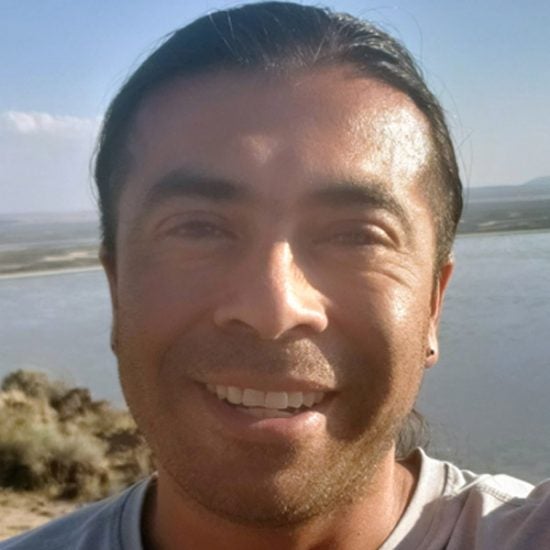An Ethical Obligation to the Underserved
When it comes to community impact, urban-planning and policy are front and center. It is in these areas, believes Dr. José Meléndez (Ph.D., ’16), where basic decisions lead to generational consequences; where communities are imagined or erased. He says there is a large deficit of adult pedagogy and social/historical cultural learning sciences knowledge doing community-based work, while there is a lack of community center qualified individuals in academic settings pursuing Ph.D.’s that shape future community centered workers. That’s why he treats his ability to shape the future public servants he teaches and engages with as an ethical obligation.

“This is where my passion is. I owe it to the communities I come from to make sure the mistakes of the past are not replicated.”
Main Body Heading link
“This is where my passion is,” said Meléndez. “I owe it to the communities I come from to make sure the mistakes of the past are not replicated.”
Meléndez was born in El Salvador and grew up in New York City. He studied Slavic history and modern dance at Oberlin College. After a year of doing community-based leadership development and capacity building assistance, he decided to go back to school.
“I went to grad school because while doing leadership development and community-based capacity building assistance, I realized that there was a deficit in knowledge of how adults teach and learn with one another when engaged in activities that improve their own self-condition in their communities,” Meléndez said.
He earned his M.Ed. at UIC’s College of Education where his mentor Bill Schubert encouraged Meléndez to take Ph.D. level courses that allowed him to imagine how he could engage in the production of knowledge creation in non-academic settings. He took LRSC 512 with Josh Radinsky (Meléndez’s future advisor) and Tom Moher, where he learned to explore the design of learning environments in community settings.
Meléndez said he was heartened by the idea that, with the Ph.D. program in the learning sciences, he could have disciplinary expertise in two disciplines.
“Urban planning is the field where community development, organizing, and planning are more front and center,” he said, “while the learning sciences program at UIC supported interdisciplinary studies of fields outside of science, technology, engineering, and math (STEM).”
Now Assistant Professor of Planning for Engaging Diverse Communities at the University of Oregon’s School of Planning, Public Policy, and Management, Meléndez is making good on his obligations to underserved communities.
Just underway is a Participant Action Research (PAR) grant, funded by the Sociological Initiatives Foundation that will investigate structural barriers limiting participation of Latinos in municipal government in Lane County (LC), Oregon. The grant is a collaboration with Latino/a/x Leaders Working Group (Latino/a/x LWG) from across LC, and will examine how the design and structure of local government across different jurisdictions in LC create institutional system-level barriers for Latinos/a/x leaders who attempt to engage in the various political arenas.
Then there’s the multiphase, cross-sectional study, “Oregon’s Decision-Making Bodies: Diverse and Equitable Representation.” This study highlights findings related to boards and commissions involving immigrant members of the public at the city, county, and state levels. Meléndez and his colleagues documented the role and function of the decision-making bodies and the degree to which they were demographically representative of the various immigrant communities they impact. Findings demonstrate that these bodies offered the immigrants’ opportunities to develop new skills, acquire new knowledge on the intricacies of how government works, and expand members’ concepts of the potential benefits and limitations of government work.
Next up is a National Science Foundation-sponsored project, the Cascadia Coastlines and Peoples Hazards Research hub (Cascadia CoPes hub), for which Meléndez is a leading principal investigator. Building on Meléndez’s innovative approach to looking at decision-making bodies in Oregon and expanding it to look at disaster and resilience planning, CoPes will inform and enable integrated hazard assessment, mitigation, and adaptation—including comprehensive planning, policy making, and engineering—through targeted fundamental scientific advances and modeling co-produced in sustained collaboration with coastal communities.
“My system-level approach to community engagement will be used to translate STEM knowledge by decision-making bodies along the coastline to ensure under-represented communities have a voice in how to plan for environmental change and resilience,” Meléndez said.